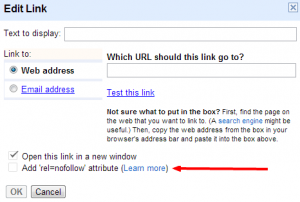
Evolution of SEO
We all know that SEO exists, and we know it’s an important part of business. But we don’t spend time thinking about its origins. That’s why I’m going to explain a bit the origins and evolution of SEO.
The first search engine appeared in the 1990, but there weren’t any positioning. As search engines became more mainstream and widely used, site owners started to get wise. It was discovered that by taking some rather simple actions, search engine results could be manipulated and money could be made from the internet.
Those results, though, weren’t exactly quality ones. And that is where the SEO story begins.
With search engines becoming household names and more families becoming connected to the Internet, finding information came with greater ease. The problem, as noted above, was the quality of that information.
The website owners started repeating keywords to improve in the ranking and make money throw potential advertaisers.
In 1998, two students, Sergey Brin and Lawrence Page, created Google a technology that help rank search results based on quality, and not keywords alone.
Google began to help webmasters rank without any methods from the 90s.
In November 2003, with the update to Google’s algorithm, sites started loosing their ranking because of penalties for things like repeating keywords. Also, many sites benefitted from the change. The main porpouse was to offer the users quality content.
In 2005, Google united with Yahoo and MSN for the Nofollow Attribute, which was created in part to decrease the amount of spammy links and comments on websites, especially blogs. Then, in June, Google debuted personalized search, which used someone’s search and browsing history to make results more relevant.

In 2008, Google Suggest was launched to improve usability and offer users more relevant content by displaying suggestes search options based on historical data. This user-focused approach to SEO helped lay the doundation for a more captivating and personalized web.
Between 2010 and 2012, a massive change in SEO occurred. Major updates from Google enforced stricter regulations on keywords, content qualiti, and over-optimization. Improved localized SEO results were listed directly in SERP’s (Search Engine Results Pages) to organize all local information and offer new advertising opportunities.
Nowadays, segmented content offers the greates opportunity to increase search authority by building relationships and links. The internet demands personalization and quality content to be competitive.
Trends over the last 25 years show the importance of demonstrating ethical optimization techniques and building relationships with users and content creators. As SEO develops, we can expect to see more regulations and penalties for any questionable practices.

